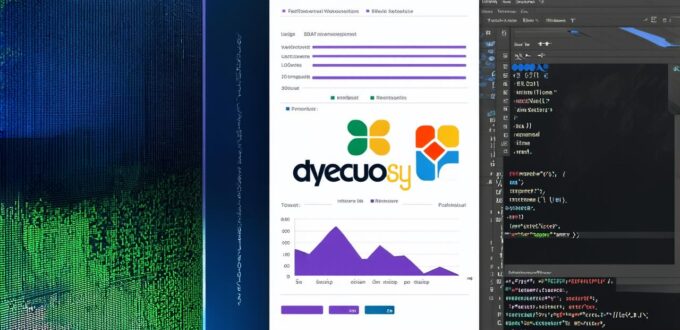Software has become an integral part of our daily lives. It powers everything from our smartphones and computers to the cars we drive and the planes we fly.
What is Software?
Software is a set of instructions or programs that tell a computer what to do. It is essentially a collection of code written in a programming language that can be executed by a computer to perform specific tasks. Software can range from simple applications like calculators and text editors to complex systems like operating systems and web browsers.
The Evolution of Software
Software has come a long way since its inception. The first known software was developed in the 1940s by John von Neumann, who wrote the first compiler, which converted high-level code into machine language that could be executed by a computer. Since then, software has evolved to become more sophisticated and versatile, with new programming languages and development tools emerging all the time.
The Role of Software in Our Lives
Software plays a critical role in our daily lives. It powers everything from our smartphones and computers to the cars we drive and the planes we fly. In fact, software has become so ubiquitous that it’s hard to imagine life without it. From social media and online shopping to gaming and entertainment, software has transformed every aspect of our lives.
The Impact of Software on Society
Software has had a profound impact on society as a whole. It has enabled us to communicate and collaborate in ways that were previously impossible, and has opened up new opportunities for innovation and growth. However, it has also raised important ethical and social questions about privacy, security, and the role of technology in our lives.
Examples of Software in Action
There are countless examples of software in action all around us. Here are just a few:
Operating Systems:
Operating systems like Windows, MacOS, and Linux are the backbone of computers and smartphones. They provide the interface between the user and the hardware, and manage everything from memory allocation to file storage.
Web Browsers:
Web browsers like Google Chrome, Firefox, and Safari allow us to access the internet and view web pages. They use software to render HTML and CSS code and display images and videos.
Productivity Tools:
Productivity tools like Microsoft Office, Google Suite, and Dropbox help us create, edit, and share documents and files. They use software to store, organize, and manipulate data in a variety of formats.
Gaming Software:
Gaming software like Unity, Unreal Engine, and CryEngine power the world’s most immersive games. They use advanced graphics and physics engines to create realistic game worlds and characters.
Medical Software:
Medical software like Electronic Health Records (EHR) systems and telemedicine platforms have transformed healthcare by improving patient outcomes and reducing costs.
Artificial Intelligence and Machine Learning Software:
AI and machine learning software are revolutionizing industries ranging from finance to healthcare by automating tasks, making predictions, and enabling new forms of innovation.

The Future of Software
As technology continues to advance, software will continue to play an increasingly important role in our lives. From artificial intelligence and machine learning to virtual and augmented reality, software is at the forefront of innovation and progress. However, as software becomes more sophisticated and interconnected, it also raises important ethical and social questions about privacy, security, and the role of technology in our lives.
FAQs
1. What is software development?
Software development is the process of designing, building, testing, and maintaining computer programs and applications. It involves using programming languages, development tools, and best practices to create software that meets the needs of users.
2. What are some challenges faced by software developers?
Software development is a complex and challenging field that requires a deep understanding of programming languages, development tools, and best practices. Some common challenges faced by software developers include debugging code, maintaining code quality, and keeping up with evolving technologies and trends.
3. How do operating systems work?
Operating systems provide the interface between the user and the hardware, manage resources like memory and files, and enable other software to run on the computer or device.
4. What are some examples of software in healthcare?
Medical software like Electronic Health Records (EHR) systems, telemedicine platforms, and medical imaging software have transformed healthcare by improving patient outcomes and reducing costs.
5. How does artificial intelligence work?
Artificial intelligence involves using algorithms and data to enable machines to perform tasks that would normally require human intelligence, such as understanding natural language or recognizing images. AI can be used in industries ranging from finance to healthcare to improve efficiency and productivity.
